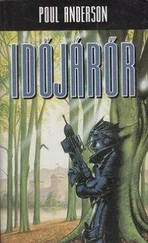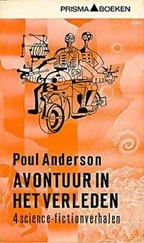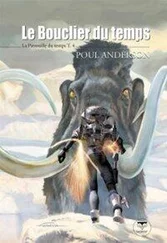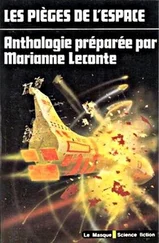Poul Anderson - Hunter's Moon
Здесь есть возможность читать онлайн «Poul Anderson - Hunter's Moon» весь текст электронной книги совершенно бесплатно (целиком полную версию без сокращений). В некоторых случаях можно слушать аудио, скачать через торрент в формате fb2 и присутствует краткое содержание. Жанр: Фантастика и фэнтези, на английском языке. Описание произведения, (предисловие) а так же отзывы посетителей доступны на портале библиотеки ЛибКат.
- Название:Hunter's Moon
- Автор:
- Жанр:
- Год:неизвестен
- ISBN:нет данных
- Рейтинг книги:5 / 5. Голосов: 1
-
Избранное:Добавить в избранное
- Отзывы:
-
Ваша оценка:
- 100
- 1
- 2
- 3
- 4
- 5
Hunter's Moon: краткое содержание, описание и аннотация
Предлагаем к чтению аннотацию, описание, краткое содержание или предисловие (зависит от того, что написал сам автор книги «Hunter's Moon»). Если вы не нашли необходимую информацию о книге — напишите в комментариях, мы постараемся отыскать её.
Hunter's Moon — читать онлайн бесплатно полную книгу (весь текст) целиком
Ниже представлен текст книги, разбитый по страницам. Система сохранения места последней прочитанной страницы, позволяет с удобством читать онлайн бесплатно книгу «Hunter's Moon», без необходимости каждый раз заново искать на чём Вы остановились. Поставьте закладку, и сможете в любой момент перейти на страницу, на которой закончили чтение.
Интервал:
Закладка:
“M-m, yeah, the terrific speed of Medean animals, key molecules more labile than the corresponding compounds in us… Hey, wait! Neither Erakoum nor A’i’ach had more than a smattering of English. Certainly no Czech, which you’ve told me you usually think in. Besides, look what an effort we had to make before we could tune them in at all, in spite of everything learned on the mainland. They’d no reason to do the same, no idea of scientific method. They surely assumed it was only a whim or a piece of magic or something that made us want them to carry those objects around.”
Jannika shrugged. “Perhaps when we are in rapport, we think more in their languages than we ourselves realize. And both kinds of Medeans think faster than humans, observe, learn. Anyway, I do not say their contact with us was as good as our contact with them. If nothing else, radio has much less bandwidth. I think probably what they picked up from us was subliminal.”
“I guess you’re right,” Hugh sighed. “We’ll have to sic the electronicians and neurologists into the problem, but I sure can’t think of any better explanation than yours.”
He leaned forward. The energy which now vibrated in his voice turned cold: “But let’s try to see this thing in context, so we can maybe get a hint of what kind of information the natives have been receiving from us. Let’s lay out once more why the Hansonian dromids and ouranids are at war. Basically, the dromids are dying off, and blame the ouranids. Could we, Port Kato, be at fault?”
“Why, hardly,” Jannika said in astonishment. “You know what precautions we take.”
Hugh smiled without mirth. “I’m thinking of psychological pollution.”
“What? Impossible! Nowhere else on Medea—”
“Be quiet, will you?” he shouted. “I’m trying to bring back to my mind what I got from my friend that your friend killed.”
She half rose, white-faced, sat down again, and waited. The wineglass trembled in her fingers.
“You’ve always babbled about how kind and gentle and esthetic the ouranids are,” he said, at her rather than to her. “You swoon over this beautiful new local faith they’ve acquired—the windborne flight to Farside, the death in dignity, the Nirvana, I forget what else. To hell with the grubby dromids. Dromids don’t do anything but make tools and fires, hunt, care for their young, live in communities, create art and philosophy, same as humans. What’s interesting to you in that?
“Well, let me tell you what I’ve told you before, dromids are believers too. If we could compare, I’d give long odds their faiths are stronger and more meaningful than the ouranids’. They keep trying to make sense of the world. Can’t you sympathize the least bit?
“Okay, they have a tremendous respect for the fitness of things. When something goes seriously wrong—when a great crime or sin or shame happens—the whole world hurts. If the wrong isn’t set right, everything will go bad. That’s what they believe on Hansonia, and I don’t know but what they’ve got hold of a truth.
“The lordly ouranids never paid much attention to the groundling dromids, but that was not symmetrical. The ouranids are as conspicuous as Argo, Colchis, any part of nature. In dromid eyes, they too have their ordained place and cycle.
“All at once the ouranids change. They don’t give themselves back to the soil when they die, the way life is supposed to—no, they head west, over the ocean, toward that unknown place where the suns go down every evening. Can’t you see how unnatural that might seem? As if a tree should walk or a corpse rise. And not an isolated incident; no, year after year after year.
“Psychosomatic abortion? How can I tell? What I can tell is that the dromids are shocked to the guts by this thing the ouranids are doing. No matter how ridiculous the thing is, it hurts them!”
She sprang to her feet. Her glass hit the floor. “Ridiculous?” she yelled. “That Tao , that vision? No, ridiculous, that’s what your… your fuxes believe—except that it makes them attack innocent beings and, and eat them—I can’t wait till those creatures are extinct!”
He had risen likewise. “You don’t care about children dying, no, of course not,” he answered. “What sense of motherhood have you got, for hell’s sake? About like a balloon’s. Drift free, scatter seed, forget it, it’ll bud and break loose and the Swarm will adopt it, never mind anything except your pleasure.”
“Why, you—Are you wishing you could be a mother?” she jeered.
His empty hand swung at her. She barely evaded the blow. Appalled, they stiffened where they stood.
He tried to speak, failed, and drank. After a full minute she said, quite low: “Hugh, our natives were getting messages from us. Not verbal. Unconscious. Through them”—she choked—“were you and I seeking to kill each other?”
He gaped until, in a single clumsy gesture, he set his own glass down and held out his arms to her. “Oh, no, oh, no,” he stammered. She came to him.
Presently they went to bed. And then he could do nothing. The medicine cabinet held a remedy for that, but what followed might have happened between a couple of machines. At last she lay quietly crying and he went out to drink some more.
The wind awakened her. She lay for a time listening to it boom around the walls. Sleep drained out of her. She opened her eyes and looked at the clock. Its luminous dial said three hours had passed. She might as well get up. Maybe she could make Hugh feel better.
The main room was still lighted. He was asleep himself, sprawled in an armchair, a bottle beside it. How deep the lines were in his face.
How loud the wind was. Probably a storm front which the weather service had reported at sea had taken a quick, unexpected swing this way. Medean meteorology was not yet an exact science. Poor ouranids, their festival disrupted, they themselves blown about and scattered, even endangered. Normally they could ride out a gale, but a few might be carried to disaster, hit by lightning or dashed against a cliff or hopelessly entangled in a tree. The sick and injured would suffer most.
A’i’ach.
Jannika squeezed her lids together and struggled to recall how badly wounded he was. But everything had been too confused and terrible; Hugh had diverted her attention; before long she had flitted out of transmission range. Besides, A’i’ach himself could hardly have ascertained his own condition at once. It might not be grave. Or it might. He could be dead by now, or dying, or doomed to die if he didn’t get help.
She was responsible—perhaps not guilty, by a moralistic definition, but responsible.
Resolution crystallized. If the weather didn’t preclude, she would go search for him.
Alone? Yes. Hugh would protest, delay her, perhaps actually restrain her by force. She recorded a few words to him, wondered if they were overly impersonal, decided against composing something more affectionate. Yes, she wanted a reconciliation, and supposed he did, but she would not truckle. She redonned her field garb, added a jacket into whose pockets she stuffed some food bars, and departed.
The wind rushed bleak around her, whoo-oo-oo, a torrent she must breast. Clouds scudded low and thick, tinged red where Argo shone between them. The giant planet seemed to fly among ragged veils. Dust whirled in the compound, gritty on her skin. Nobody else was outdoors.
At the hangar, she punched for the latest forecast. It looked bad but not, she thought, frightening. (And if she did crash, was that such an enormous loss, to herself or anyone else?) “I am going back to my study area,” she told the mechanic. When he attempted to dissuade her, she pulled rank. She never liked that, but from the Danubian ghosts she had learned how. “No further discussion. Stand by to open the way and give me assistance if required. That is an order.”
Читать дальшеИнтервал:
Закладка:
Похожие книги на «Hunter's Moon»
Представляем Вашему вниманию похожие книги на «Hunter's Moon» списком для выбора. Мы отобрали схожую по названию и смыслу литературу в надежде предоставить читателям больше вариантов отыскать новые, интересные, ещё непрочитанные произведения.
Обсуждение, отзывы о книге «Hunter's Moon» и просто собственные мнения читателей. Оставьте ваши комментарии, напишите, что Вы думаете о произведении, его смысле или главных героях. Укажите что конкретно понравилось, а что нет, и почему Вы так считаете.









